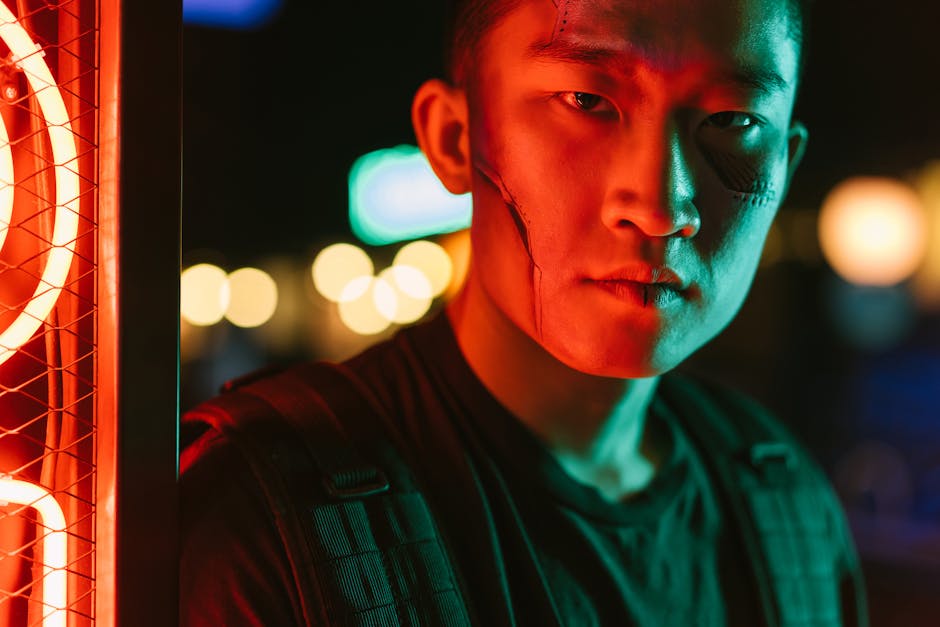No products in the cart.
AI’s Cinematic Revolution: Sora 2 and the Future of Digital Jobs
Explore how Sora 2 is revolutionizing cinema and its broader implications on the digital job market.
San Francisco, USA — The advent of artificial intelligence is reshaping industries, and the film sector is no exception. With the release of Sora 2, a groundbreaking AI-driven cinematic tool, the lines between reality and digital creation are blurring. This innovation not only enhances filmmaking possibilities but also poses significant questions about the future of jobs in the digital landscape.
Sora 2, launched on October 5, 2025, leverages deep learning and neural networks to create hyper-realistic visuals and narratives. The platform enables filmmakers to produce content that once required extensive human resources, thus challenging traditional roles in the industry. As AI increasingly takes on creative tasks, the implications for employment within film and digital media are profound.

The technology behind Sora 2 is a product of years of research and development by leading AI firms, including OpenAI and DeepMind. These organizations have been at the forefront of AI advancements, contributing to tools that enhance creative processes. Sora 2’s capabilities allow for real-time editing and visual effects generation, which can significantly reduce production time and costs. For instance, filmmakers can now generate entire scenes with minimal human input, a process that previously required extensive labor and resources.
However, as AI tools like Sora 2 become mainstream, concerns about job displacement are surfacing. According to a report from the World Economic Forum published in 2023, automation and AI technologies could displace 85 million jobs globally by 2025, while simultaneously creating 97 million new roles that require different skill sets.[1] This duality raises critical questions: Will the new jobs created in the digital economy be accessible to those displaced? Will they require skills that the current workforce possesses?
Will they require skills that the current workforce possesses?
Experts suggest that while AI will automate repetitive tasks, the demand for creative and strategic roles will increase. The need for human oversight in storytelling, emotional intelligence, and ethical considerations in content creation cannot be overstated. As Sora 2 and similar technologies evolve, the industry will likely see a shift towards roles that blend creativity with technical proficiency.[2]
Moreover, educational institutions are already responding to these changes. In 2024, several universities introduced courses focused on AI in media production, aiming to equip students with the necessary skills to navigate this new landscape. For instance, New York University’s Tisch School of the Arts launched a program that combines traditional filmmaking techniques with AI tools, preparing students for the future of work in film and digital media.[3] This proactive approach could mitigate some of the job displacement risks associated with AI adoption.
Furthermore, the gig economy is evolving alongside these technological advancements. As more filmmakers and content creators turn to freelance work, platforms that facilitate AI-driven projects are gaining traction. Companies like Upwork and Fiverr are integrating AI tools to help freelancers enhance their offerings, creating new opportunities in the digital job market. For instance, freelancers can use Sora 2 to deliver high-quality content more efficiently, thereby attracting more clients and projects.
Nonetheless, the ethical implications of using AI in creative fields cannot be ignored. Issues surrounding copyright, originality, and the authenticity of AI-generated content are emerging. The film industry must grapple with these challenges to maintain its integrity and ensure fair compensation for creators. As AI continues to advance, regulatory frameworks will need to evolve to address these concerns adequately.
Looking ahead, the integration of AI in film and digital media is poised to redefine career paths for creative professionals. While some traditional roles may diminish, new opportunities will arise, emphasizing the importance of adaptability and continuous learning. Industry professionals must embrace these changes, upskill, and remain agile in a rapidly evolving landscape.
In 2024, several universities introduced courses focused on AI in media production, aiming to equip students with the necessary skills to navigate this new landscape.
The future of work in the digital economy, particularly in film and media, hinges on the collaboration between human creativity and artificial intelligence. As tools like Sora 2 enhance the storytelling process, they will also challenge professionals to rethink their roles and contributions in an increasingly automated world. By prioritizing education, ethical considerations, and innovative practices, the film industry can leverage AI’s potential while safeguarding the future of its workforce.








